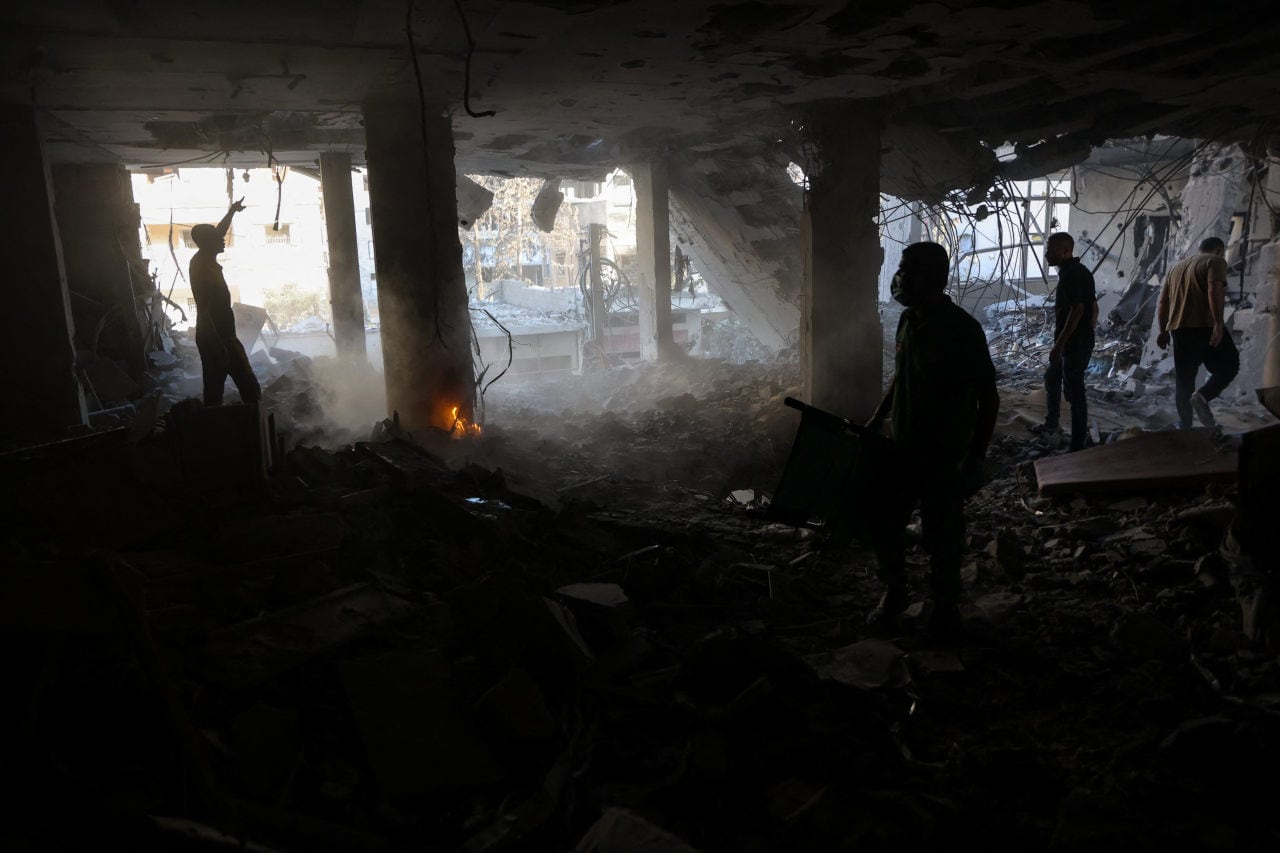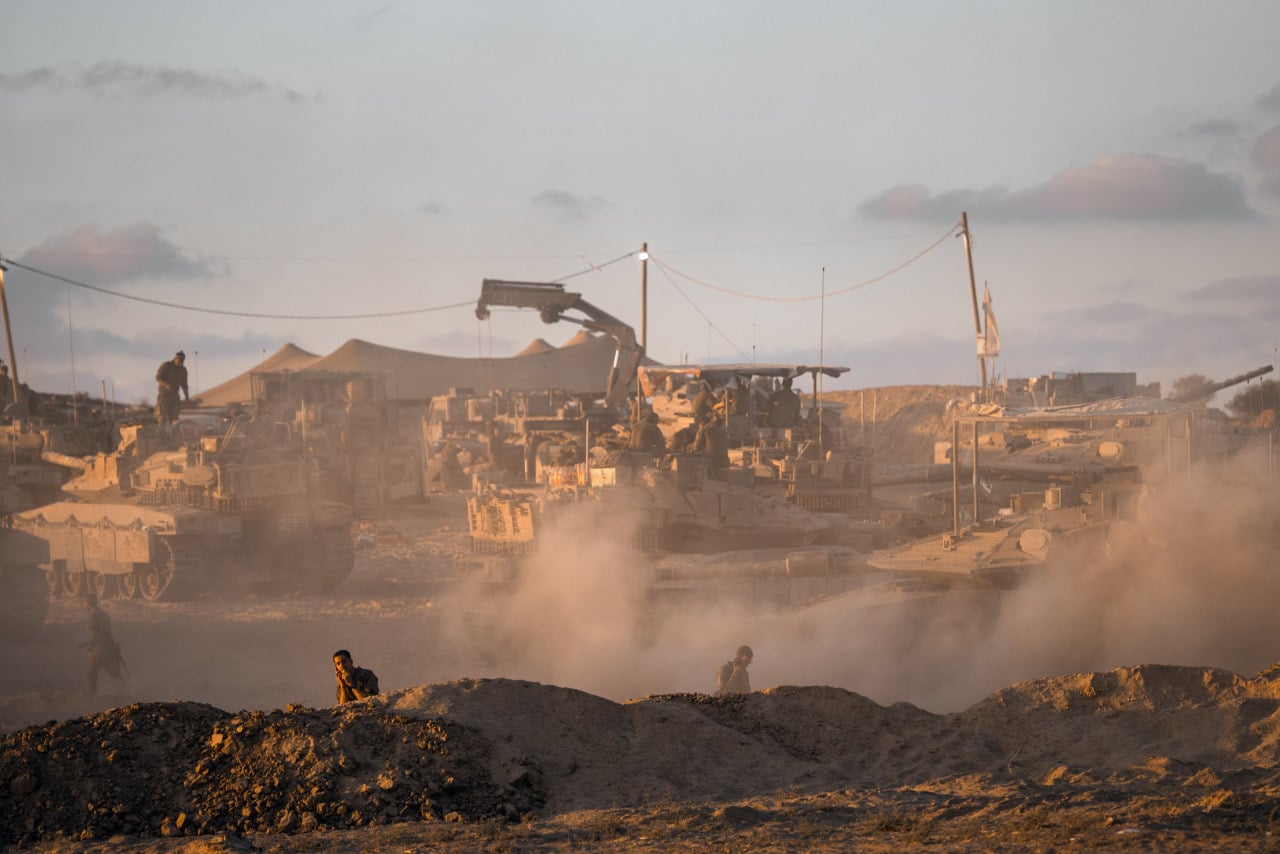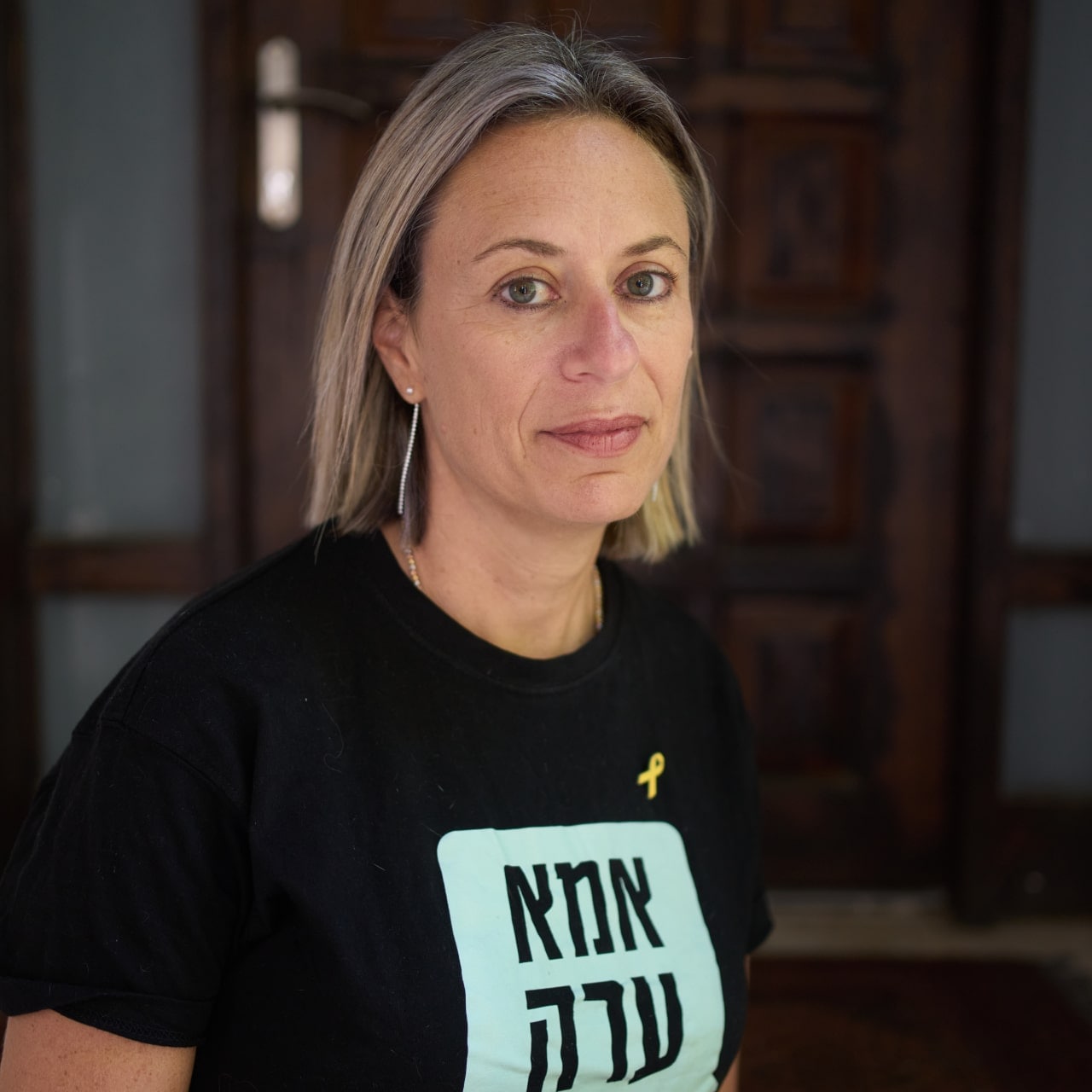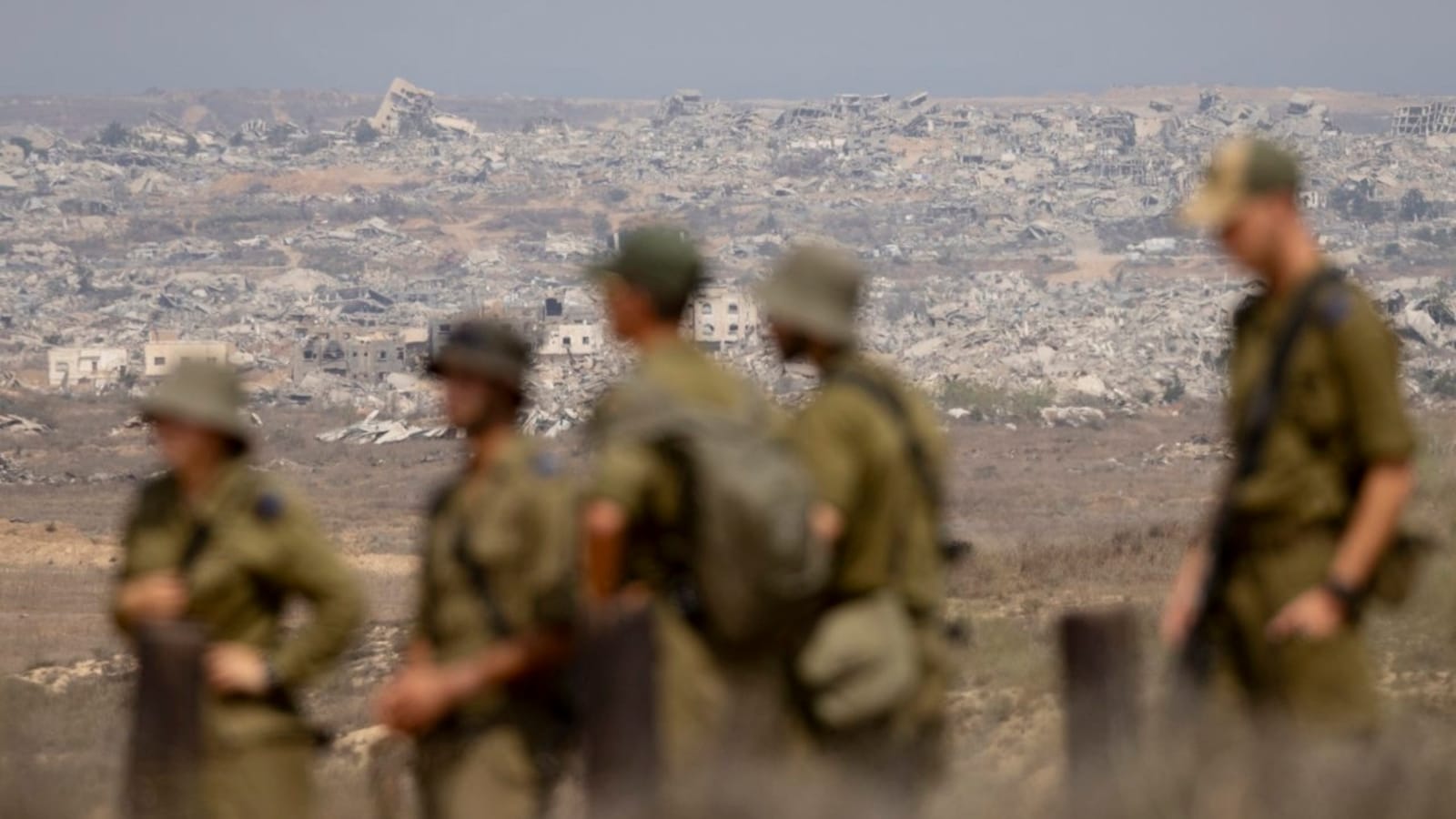TEL AVIV—As the Israeli military prepares for a new offensive on Gaza City, military commanders are struggling to find enough reservists willing to report for duty.
Israeli troops are exhausted after nearly two years of fighting on several fronts, and more are questioning the purpose of the war. As the military is now calling up some 60,000 reservists from their jobs, studies and families to support the new mission, many are saying they are at a breaking point, according to more than 30 officers and soldiers who were interviewed by The Wall Street Journal.
Some commanders have turned to unusual methods to find enough men.
“I’m looking for combat soldiers, mainly medics and snipers for an operation of 70 days starting on September 11. If there are reservists who are interested please message me privately,” read one recent message by a commander on a WhatsApp group for Israeli university students.
The Israeli military said that it maintains operational preparedness and works to support its reservists, who it describes as essential to the success of its missions.
The shortage has been developing for months and tracks with growing Israeli discontent over the war. Many polls show as much as 80% of the Israeli public want Prime Minister Benjamin Netanyahu to strike a deal that will end the war and bring the hostages home. Thousands of Israeli military veterans and reservists have signed petitions to stop the fighting and return the hostages.
It marks a sharp shift from how most reservists felt after the Hamas-led Oct. 7, 2023, attack that launched the war. In the days following the attack, many reservists voluntarily showed up to fight, believing the battle was to save their country. But that belief has gradually crumbled as the war drags on and reservists find themselves being called up again and again.
One master sergeant in the 98th commando division, who has fought for 400 days since the start of the war, including long stints in Gaza and Lebanon, said he has come to believe that people are dying for nothing and that Netanyahu is prolonging the war for his own political survival, a widely held view in parts of Israeli society. The prime minister denies the charge.
The master sergeant recently received a call from the military inquiring if he was available to return for duty for the Gaza City operation. Having spent months fighting in Khan Younis earlier in the war, he says Hamas can’t be completely destroyed because of the way it conducts guerrilla warfare.
Most Israeli Jews are drafted for mandatory military service in Israel at age 18. Israel keeps a relatively small standing army that it fills out with reservists especially during times of war. Most reservists serve a few weeks a year until the age of 40 or 45 depending on their position. But people can often get exemptions from reserve duty even though it is mandatory.
Many reservists are also frustrated that the Netanyahu government is pushing for an exemption from military service for Israel’s ultraorthodox minority.
The Gaza war is now Israel’s longest. It is straining families, as men have to leave their wives, children and jobs for long stretches. It is also taking a psychological toll on many men.
Dalit Kislev Spektor said her husband, a commander in the reserves, was strained by his accumulated 580 days of service. She recalled how he came home last month in a state of shock after identifying the body of a fellow reservist who had died by suicide.
Dalit Spektor, whose husband has served for 580 days in Gaza, leads a group called Ima Era that calls for responsible management of the war.Dalit Spektor holds a photo of her husband during a deployment to the Gaza Strip.
Spektor said that many men in her husband’s 150-man logistical unit have lost their jobs, gotten divorced or faced financial ruin over their prolonged service and now are increasingly questioning the purpose of the fighting in Gaza. Spektor worries that her husband will be called up again.
“I told him ‘The war is political, because none of us believes in our leadership. If it was up to me, I would ask you not to go,’” said Spektor, who leads a group called Ima Era that calls for responsible management of the war. Several reservists, especially fathers to young children, told the Journal they stopped showing up because their wives couldn’t take it anymore.
Commanders are trying to find solutions. One company commander who is busy calling up soldiers for a coming tour in September said that he started sending out a form ahead of time where reservists can mark specific dates they aren’t available.
The online form, which was viewed by the Journal, allows reservists to rank how important their request for leave was from 1 to 5. To ease the burden, the troops will also be moving to a more flexible model where they serve one week followed by a week break for the duration of the 90-day tour, which was just extended.
Reservists whose current service has been extended because of the operation described feeling frustrated. The Israeli military has said that it plans to extend the service of 20,000 active-duty reservists, on top of the 60,000 who the military is currently calling up.
The forces taking part in the coming Gaza City operation will be mainly composed of mandatory service soldiers—those who have been called up to complete their three years in the armed forces, according to a military official. This time, reservists will mostly be replacing soldiers in Syria, Lebanon and the West Bank, although some will still serve in Gaza.
Israeli chief of staff Eyal Zamir opposed a complete occupation of Gaza in a security-cabinet meeting last month in part because of manpower issues, according to a person familiar with the matter.
A 31-year-old combat engineer whose unit is currently serving in southern Gaza said his service was recently extended until the end of November, affecting both his motivation and that of other soldiers he serves with.
Israeli soldiers and tanks near the Gaza Strip’s northern border in August.Palestinians look for survivors after an Israeli strike in a Gaza City neighborhood over the weekend.
He said he asked to be moved to a noncombat role outside of Gaza because his unit commanders were putting soldiers at risk, including in a recent friendly fire incident. He said that his commander wasn’t replaced because of manpower shortages.
Despite the growing fatigue and doubts about the war, some reservists said they still plan to go back.
Reservists usually continue to show up for military duty to support their friends who are fighting and because they still identify with the overall mission, said Idit Shafran Gittleman, a senior researcher at the Tel Aviv-based Institute for National Security Studies, who has conducted focus groups with Israeli reservists. As the identification with the mission has dropped dramatically, many continue to go back for their comrades, she said.
A smaller group of reservists say they have stopped returning for duty because of what they said were ideological reasons, including immoral behavior they have witnessed against Palestinians.
One reservist said he stopped showing up after he was present when a commander reported that his forces had shot three Gazan women accidentally, killing one, and asking for permission to dump the wounded women in a humanitarian zone. A senior commander agreed to the request. The reservist said he was shocked by the nonchalant way the matter was discussed. He told them he couldn’t serve any more.
When asked about his comments, the Israeli military said that it continues to work to identify unusual cases that deviate from what is expected of its soldiers, and such cases are examined and addressed through relevant channels.
“The more question marks there are around the justification of the fighting, the more people will be hesitant to show up,” Gittleman said. “We are very close to the red line.”
Write to Anat Peled at anat.peled@wsj.com




